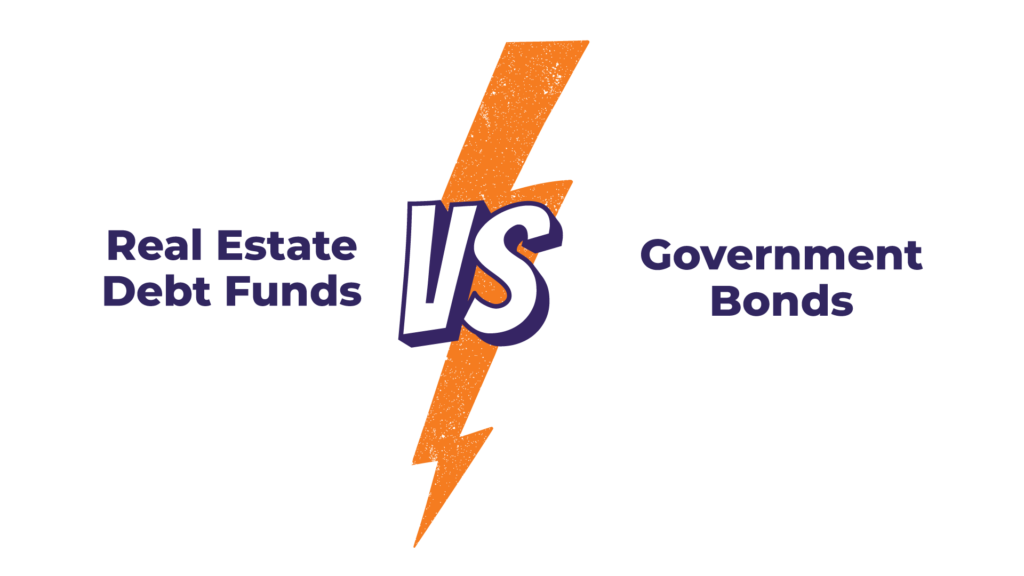Making investment decisions was always stressful, but Amish changed that. Their workshop, 'Invest Smarter,' provided a clear framework for comparing real estate debt funds and government bonds. The breakdown of each option, including risks, returns, and tax implications, was invaluable. Now, I feel equipped to make informed investment choices that align with my financial goals. Thanks, Amish!


Project Manger
I always thought real estate was the only way to invest, but Amish opened my eyes to the potential of government bonds. Their 'Invest Smarter' workshop provided a clear comparison of both options, allowing me to make a well-rounded decision. Amish not only explained the risks and returns but also factored in my long-term goals. Feeling confident and empowered about my investment strategy, thanks to Amish!


Accountant
Confused between real estate and bonds? Amish cut through the jargon and made investing crystal clear. Their workshop, 'Invest Smarter: Choose Between Real Estate Debt Funds and Government Bonds,' helped me understand the pros and cons of each option. Thanks to Amish, I confidently chose the investment strategy that best aligns with my risk tolerance and financial goals. Highly recommend their services for anyone looking to make informed investment decisions!


Software Engineer


Real estate debt funds are managed by experienced investment professionals who specialize in real estate finance. The management of these funds involves a multifaceted approach to investment selection and risk assessment, focusing on three primary areas: real estate market dynamics, property values, and borrower creditworthiness.
Fund managers conduct extensive research to understand broader market trends as well as localized real estate conditions. This involves analyzing economic indicators such as employment rates, GDP growth, and consumer spending, as well as real estate-specific trends like property supply and demand, rental yields, and vacancy rates.
Real estate Debt funds offer several advantages and some drawbacks, which include:
Pros
Cons


Government bonds refer to debt instruments issued by governments for supporting their spending needs & obligations. In the United States these include Treasury bonds, notes, bills etc backed up with full faith & creditworthiness of US Govt thus making it one among safest investments where risk of default is very low compared to other securities.
When you buy a government bond then essentially what happens is that the Federal Govt borrows money from you and promises to pay it back at certain interest rates until maturity date when they return the initial principal amount also known as face value). These can be bought through TreasuryDirect website directly or via banks/brokers; usually economic conditions determine interest rates charged on them because being perceived as a safe haven investment they normally offer lower yields than riskier assets such as stocks.
investing in government bonds has its upsides and downsides:
Pros
Cons
Two of the most well-liked investment possibilities are real estate debt funds and government bonds. They cater to different needs of investors in terms of risk, returns and investment strategy.
The table below presents a side-by-side comparison between them:
Feature | Real Estate Debt Funds | Government Bonds |
Risk | Higher, secured by real estate | Very low, government-backed |
Returns | Higher, from interest on loans | Lower, stable from fixed interest |
Liquidity | Lower, tied to real estate assets | Very high, easily traded |
Investment Minimum | Varies, often higher for direct investment | Lower, accessible to individual investors |
Tax Benefits | Potential benefits from real estate ownership, varies by jurisdiction | Interest often exempt from state and local taxes; federal tax applicable |


Here’s a comparison of the tax implications for investing in real estate debt funds versus government bonds:
Real estate debt funds generally generate income from interest, which is typically taxed as ordinary income at the investor’s marginal tax rate. This rate can be as high as 37% depending on the investor’s income bracket.
If these funds involve elements of capital gains—say, from the sale of an underlying property—these gains are taxed either as short-term or long-term capital gains depending on the holding period. Long-term capital gains benefit from lower tax rates, especially after indexation benefits which adjust the purchase price for inflation.
Interest income from U.S. Treasury bonds is exempt from state and local taxes, which can provide a significant tax advantage to investors in high-tax states. However, this income is still subject to federal taxes.
Other types of government bonds, like municipal bonds, may offer further tax exemptions, including from federal income taxes, making them highly attractive from a tax perspective.
These differences highlight the importance of considering your investment horizon and tax situation when choosing between real estate debt funds and government bond
Government bonds are debt securities issued by the government to fund its financial needs and obligations.
Unlike general debt funds that may invest in various bonds or debentures, real estate debt funds specifically target loans and debt instruments secured by real estate. This focus tends to offer higher yields due to the added risk and complexity of real estate investments.
Yes, interest from U.S. Treasury bonds is exempt from state and local taxes but is subject to federal tax.
These funds are best suited for investors who are comfortable with real estate market exposure and are looking for higher income than typical government or corporate bonds can offer.
Disclaimer: This information is for educational purposes only and should not be considered financial or tax advice. Always consult with a qualified financial advisor and tax professional before making any investment decisions related to Real Estate Debt Funds and Corporate Bonds.